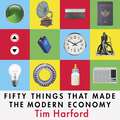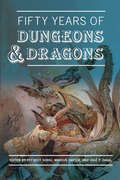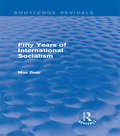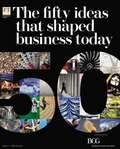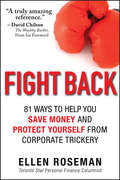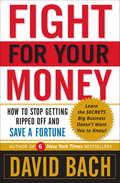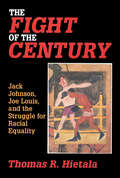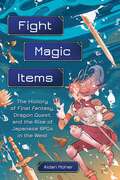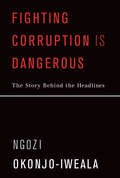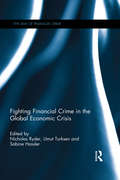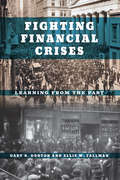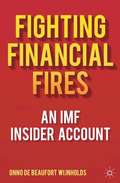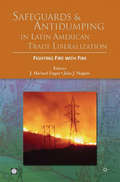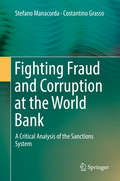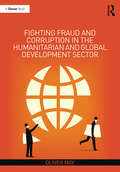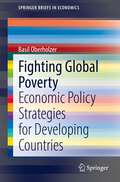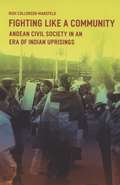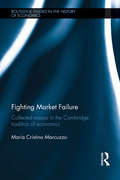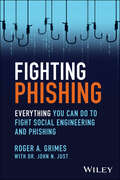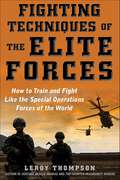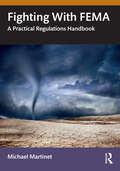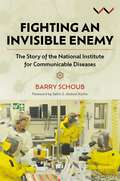- Table View
- List View
Fifty Things that Made the Modern Economy
by Tim HarfordBased on the series produced for the BBC World ServiceA Financial Times and Bloomberg Business Week Book of the YearWho thought up paper money? How did the contraceptive pill change the face of the legal profession? Why was the horse collar as important for human progress as the steam engine? How did the humble spreadsheet turn the world of finance upside-down?The world economy defies comprehension. A continuously-changing system of immense complexity, it offers over ten billion distinct products and services, doubles in size every fifteen years, and links almost every one of the planet's seven billion people. It delivers astonishing luxury to hundreds of millions. It also leaves hundreds of millions behind, puts tremendous strains on the ecosystem, and has an alarming habit of stalling. Nobody is in charge of it. Indeed, no individual understands more than a fraction of what's going on. How can we make sense of this bewildering system on which our lives depend?From the tally-stick to Bitcoin, the canal lock to the jumbo jet, each invention in Tim Harford's fascinating new book has its own curious, surprising and memorable story, a vignette against a grand backdrop. Step by step, readers will start to understand where we are, how we got here, and where we might be going next.Hidden connections will be laid bare: how the barcode undermined family corner shops; why the gramophone widened inequality; how barbed wire shaped America. We'll meet the characters who developed some of these inventions, profited from them, or were ruined by them. We'll trace the economic principles that help to explain their transformative effects. And we'll ask what lessons we can learn to make wise use of future inventions, in a world where the pace of innovation will only accelerate.
Fifty Years After Bretton Woods: The Future of the IMF and the World Bank
by James M. Boughton K. Sarwar LateefA report from the International Monetary Fund.
Fifty Years of Dungeons & Dragons
by Premeet Sidhu, Marcus Carter, and José P. ZagalOn the fiftieth anniversary of Dungeons & Dragons, a collection of essays that explores and celebrates the game&’s legacy and its tremendous impact on gaming and popular culture.In 2024, the enormously influential tabletop role-playing game Dungeons & Dragons—also known as D&D—celebrates its fiftieth anniversary. To mark the occasion, editors Premeet Sidhu, Marcus Carter, and José Zagal have assembled an edited collection that celebrates and reflects on important parts of the game&’s past, present, and future. Each chapter in Fifty Years of Dungeons & Dragons explores why the nondigital game is more popular than ever—with sales increasing 33 percent during the COVID-19 pandemic, despite worldwide lockdowns—and offers readers the opportunity to critically reflect on their own experiences, perceptions, and play of D&D.Fifty Years of Dungeons & Dragons draws on fascinating research and insight from expert scholars in the field, including: Gary Alan Fine, whose 1983 book Shared Fantasy remains a canonical text in game studies; Jon Peterson, celebrated D&D historian; Daniel Justice, Canada Research Chair in Indigenous Literature and Expressive Culture; and numerous leading and emerging scholars from the growing discipline of game studies, including Amanda Cote, Esther MacCallum-Stewart, and Aaron Trammell. The chapters cover a diverse range of topics—from D&D&’s adoption in local contexts and classrooms and by queer communities to speculative interpretations of what D&D might look like in one hundred years—that aim to deepen readers&’ understanding of the game.
Fifty Years of International Socialism (Routledge Revivals)
by Max BeerFirst published 1935, this title presents a series of recollections, some intimately personal, others bearing on the great social, cultural and political issues that faced the Jews and the European population more generally during the first part of the twentieth century. The author specifically focuses on differing attitudes towards the rise of Socialism in Europe, and the fate of nineteenth-century politics in the face of the tumultuous revolutions and counter-revolutions that arose in the aftermath of the First World War.
Fifty ideas that shaped business today
by Financial Times"What makes a great business idea? How can we tell whether it will stand the test of time? And why do some new ideas have greater influence than others in shaping the environment that businesses operate in today?<P> These are the questions that a distinguided panel of judges have evaluated in drawing up a list of the 50 ideas that most shaped business today." -- from the Foreword
Fight Back
by Ellen RosemanMoney-saving advice from Canada's leading consumer advocateIn this book Ellen Roseman distills the financial advice she gives in her columns and blogs into 81 quick tips that all Canadians can use to help them spend sensibly, save money, and avoid costly consumer traps. This book of "personal finance greatest hits" is filled with illustrative examples and cautionary advice from Roseman and stories from her faithful readers. Filled with a wealth of information, the book includes the low-down on dealing with banks and car dealers, cutting costs of communication services, improving your credit, buying and renovating a home, fighting online fraud, ensuring you have the right insurance, and more.Offers an easy-to-use guide for being smart with your moneyIncludes how to advice on handling the most common financial pitfallsContains the best advice from Ellen Roseman's columns and blogsWritten by Canada's most popular and savvy consumer advocateDon't spend another dollar until you read Ellen Roseman's best-ever tips for saving money and making wise financial decisions.
Fight for Your Money: How to Stop Getting Ripped Off and Save a Fortune
by David BachThe bestselling author shows you how to protect your money and put thousands back in your pocket every year by taking on the “corporate machines” who are taking you to the cleaners. InFight For Your Money, David Bach, our favourite financial guru and consumer advocate, has written the ultimate guide to making smarter financial decisions and protecting yourself from companies who want to separate you from your hard-earned paycheque. Corporations earn billions annually from our financial ignorance. The time has come to fight back! Starting with an A to Z list of items where you are paying too much – your cell phone, cable bill, cars, credit cards, insurance, airfare, hotels and many more – Bach shows how you are being taken. Then the “Fight for Your Money Toolkit” shows you how to fight back, with sample letters, call scripts, and real-life stories of ordinary people who have fought back and won. As David Bach says, “When you are being taken financially, you work harder than you have to, for longer than you need to. When you fight for your money, you keep more of your hard earned paycheque and you spend your life doing what you really want to do. ”
Fight of the Century: Jack Johnson, Joe Louis, and the Struggle for Racial Equality
by Thomas R. HietalaThis is a revealing look at the history of race relations in the United States during the first half of the twentieth century portrayed through the lives and times of the first two African-American heavyweight boxing champions, Jack Johnson and Joe Louis. Incorporating extensive research into the black press of the time, the author explores how the public careers and private lives of these two sports figures both define and explain vital national issues from the early 1900s to the late 1940s.
Fight, Magic, Items: The History of Final Fantasy, Dragon Quest, and the Rise of Japanese RPGs in the West
by Aidan MoherTake a journey through the history of Japanese role-playing games—from the creators who built it, the games that defined it, and the stories that transformed pop culture and continue to capture the imaginations of millions of fans to this day.The Japanese roleplaying game (JRPG) genre is one that is known for bold, unforgettable characters; rich stories, and some of the most iconic and beloved games in the industry. Inspired by early western RPGs and introducing technology and artistic styles that pushed the boundaries of what video games could be, this genre is responsible for creating some of the most complex, bold, and beloved games in history—and it has the fanbase to prove it. In Fight, Magic, Items, Aidan Moher guides readers through the fascinating history of JRPGs, exploring the technical challenges, distinct narrative and artistic visions, and creative rivalries that fueled the creation of countless iconic games and their quest to become the best, not only in Japan, but in North America, too. Moher starts with the origin stories of two classic Nintendo titles, Final Fantasy and Dragon Quest, and immerses readers in the world of JRPGs, following the interconnected history from through the lens of their creators and their stories full of hope, risk, and pixels, from the tiny teams and almost impossible schedules that built the foundations of the Final Fantasy and Dragon Quest franchises; Reiko Kodama pushing the narrative and genre boundaries with Phantasy Star; the unexpected team up between Horii and Sakaguchi to create Chrono Trigger; or the unique mashup of classic Disney with Final Fantasy coolness in Kingdom Hearts. Filled with firsthand interviews and behind-the-scenes looks into the development, reception, and influence of JRPGs, Fight, Magic, Items captures the evolution of the genre and why it continues to grab us, decades after those first iconic pixelated games released.
Fighting Corruption Is Dangerous: The Story Behind the Headlines (The\mit Press Ser.)
by Ngozi Okonjo-IwealaA frontline account of how to fight corruption, from Nigeria's former finance minister Ngozi Okonjo-Iweala.In Fighting Corruption Is Dangerous, Ngozi Okonjo-Iweala has written a primer for those working to root out corruption and disrupt vested interests. Drawing on her experience as Nigeria's finance minister and that of her team, she describes dangers, pitfalls, and successes in fighting corruption. She provides practical lessons learned and tells how anti-corruption advocates need to equip themselves. Okonjo-Iweala details the numerous ways in which corruption can divert resources away from development, rewarding the unscrupulous and depriving poor people of services.Okonjo-Iweala discovered just how dangerous fighting corruption could be when her 83-year-old mother was kidnapped in 2012 by forces who objected to some of the government's efforts at reforms led by Okonjo-Iweala—in particular a crackdown on fraudulent claims for oil subsidy payments, a huge drain on the country's finances. The kidnappers' first demand was that Okonjo-Iweala resign from her position on live television and leave the country. Okonjo-Iweala did not resign, her mother escaped, and the program of economic reforms continued. “Telling my story is risky,” Okonjo-Iweala writes. “But not telling it is also dangerous.” Her book ultimately leaves us with hope, showing that victories are possible in the fight against corruption.
Fighting Fake Money: Plastic to the Rescue (Fountas & Pinnell LLI Purple #Level T)
by Kate ForsterFAKING IT. In Australia, criminal masterminds were making their own fake cash. People were becoming suspicious. How could they be sure that any money was genuine? Something had to be done. Find out how Australians outsmarted the criminals and changed money forever.
Fighting Financial Crime in the Global Economic Crisis (The Law of Financial Crime)
by Nicholas Ryder Umut Turksen Sabine HasslerMany commentators, regulatory agencies and politicians have blamed the risky behaviour of both financial institutions and their actors for the collapse of the United States sub-prime mortgage market which in turn precipitated the global 'Credit Crunch'. This edited volume explores how financial crime played a significant role in the global economic crisis. The volume features contributions from internationally renowned academic and practitioner experts in the field who pinpoint some of the most important facets of financial crime which have emerged over recent years. Key subjects include: the possibility of criminalising reckless risk-taking on the financial markets; the duty of banks to prevent money-laundering and corruption; the growth of the Shadow Banking System; and the manipulation of LIBOR by banks. The book illustrates the global nature of financial crime, and highlights the complex relationships between regulatory bodies, law enforcement agencies and private actors in the attempt to limit the harmful effect of white collar crime on the stability of the financial sector. This book will be of great use and interest to scholars, practitioners and students within the field of financial crime, banking and finance law, and international political economy.
Fighting Financial Crises: Learning from the Past
by Gary B. Gorton Ellis W. TallmanIf you’ve got money in the bank, chances are you’ve never seriously worried about not being able to withdraw it. But there was a time in the United States, an era that ended just over a hundred years ago, when bank customers had to pay close attention to the solvency of the banking system, knowing they might have to rush to retrieve their savings before the bank collapsed. During the National Banking Era (1863–1913), before the establishment of the Federal Reserve, widespread banking panics were indeed rather common. Yet these pre-Fed banking panics, as Gary B. Gorton and Ellis W. Tallman show, bear striking similarities to our recent financial crisis. Fighting Financial Crises thus turns to the past to better understand our uncertain present, investigating how panics during the National Banking Era played out and how they were eventually quelled and prevented. The authors then consider the Fed’s and the SEC’s reactions to the recent crisis, building an informative new perspective on how the modern economy works.
Fighting Financial Fires
by Onno de Beaufort WijnholdsA topical insider view of causes and consequences of financial crises since the Mexican collapse of 1995. The book includes a detailed exploration of recent and ongoing firestorms, including the near meltdown of the global financial system and the euro crisis and suggests ways to save the international financial and monetary system.
Fighting Fire With Fire: Safeguards and Antidumping in Latin American Trade Liberalization
by Julio J. Nogues J. Michael FingerUntil the 1990s, the main users of safeguards and antidumping laws were Australia, Canada, the European Union, and the United States. Since then, many countries have implemented such laws, leading to a proliferation in antidumping and safeguard activity across the world. This timely book documents the political economy surrounding the implementation of these laws in seven Latin American countries and provides details on the institutions created, implementation of the laws, and subsequent activity. It finds that, in the larger political context, antidumping and safeguards are a necessary quid pro quo to certain important sectors to obtain much more liberalized trade policies for the general economy.
Fighting Fraud and Corruption at the World Bank: A Critical Analysis Of The Sanctions System
by Stefano Manacorda Costantino GrassoThis book focuses on the World Bank’s sanctions system, which is an innovative instrument of global governance implemented by the leading multilateral development bank in order to impose penalties on legal entities and individuals that are involved in Bank-financed projects. Although similar regimes have also been implemented by other regional multilateral development banks, the World Bank’s legal framework is currently the most comprehensive one.The book offers a rich and detailed analysis of the sanctions system, presenting an in-depth examination of all the phases of its procedure with a special focus on key aspects such as the criteria for assigning liability to legal entities and corporate groups, as well as the World Bank’s jurisdictional reach over non-contractors. The book also explores the compatibility between the legal framework implemented by the Bank and the rule of law, the role of precedents, and the level of due process. It highlights the fact that the sanctions system is currently characterized by a lack of legal guarantees, and that there are compelling reasons for supporting the argument that due process safeguards should be applied to it in their entirety. To that end, the book conducts a thorough analysis of specific procedural aspects such as the right to a hearing, the right to evidence disclosure, the time limit regime, the standard of proof and shift of the burden of proof, the evidential value of a party’s silence, and the consistency and predictability of the World Bank’s sentencing practice. The study is conducted on the basis of a detailed and painstaking examination of the most relevant decisions taken by the Sanctions Board, providing the first-ever commentary on the World Bank’s case law.
Fighting Fraud and Corruption in the Humanitarian and Global Development Sector
by Oliver MayThere are an estimated 40,000 international Non-Government Organisations (NGOs), working in an enormous global aid industry; official development assistance alone reached £90bn in 2014. This is supplemented by huge voluntary giving – the UK public, for example, give around £1bn a year to overseas causes. These organisations face a unique challenge from fraud and corruption. Operating in the world’s most under-developed and fragile environments, with minimal infrastructure and trust-based cultures, the risk is high. And, being wholly reliant on donors and supporters for income, so are the stakes. Researchers make different estimates of the scale of the problem facing the sector. Some research implies that losses to the global aid budget caused by occupational fraud and abuse may be in the billions of pounds, while those to the British public's voluntary overseas donations could be in the tens of millions. For many sector professionals working in the developing world, these estimates are readily believable. Fighting Fraud and Corruption in the Humanitarian and Global Development Sector by Oliver May is a timely, accessible and relevant how-to guide, which explores the scale and nature of the threat, debunks pervasive myths, and shows readers how to help their NGOs to better deter, prevent, detect and respond to fraud and corruption.
Fighting Global Poverty: Economic Policy Strategies for Developing Countries (SpringerBriefs in Economics)
by Basil OberholzerThis book presents paths developing countries can pursue in order to reclaim their ability to take action and improve people’s living conditions in the long term. According to dominant economic theory, markets are the essential engines of growth and poverty reduction in developing countries. However, the track record so far is disappointing. On the other hand, poor countries, which are exposed to the dynamics of global capitalism, have little chance to implement alternative development strategies. Policy actions for a fairer income distribution or for more public investment run the risk of being punished by financial markets and capital flight. The book presents solutions to these issues, considering key economic foundations, and outlining feasible development strategies.It is, therefore, a must-read for policy-makers and practitioners working on fighting global poverty, as well as scholars and students of economics, interested in a better understanding of development economics, economic growth, and financial economics.
Fighting Like a Community: Andean Civil Society in an Era of Indian Uprisings
by Rudi Colloredo-MansfeldThe indigenous population of the Ecuadorian Andes made substantial political gains during the 1990s in the wake of a dynamic wave of local activism. The movement renegotiated land development laws, elected indigenous candidates to national office, and successfully fought for the constitutional redefinition of Ecuador as a nation of many cultures. Fighting Like a Community argues that these remarkable achievements paradoxically grew out of the deep differences--in language, class, education, and location--that began to divide native society in the 1960s. Drawing on fifteen years of fieldwork, Rudi Colloredo-Mansfeld explores these differences and the conflicts they engendered in a variety of communities. From protestors confronting the military during a national strike to a migrant family fighting to get a relative released from prison, Colloredo-Mansfeld recounts dramatic events and private struggles alike to demonstrate how indigenous power in Ecuador is energized by disagreements over values and priorities, eloquently contending that the plurality of Andean communities, not their unity, has been the key to their political success.
Fighting Market Failure: Collected Essays in the Cambridge Tradition of Economics (Routledge Studies In The History Of Economics Ser. #135)
by Maria Cristina MarcuzzoThis collection brings together fifteen essays published between 1994 and 2008 which all look into the contribution of a remarkable group of economists known as the "Cambridge school" or the "Cambridge Keynesians". The people involved are better defined as a "group" rather than a "school", to denote not adhesion to a common body of doctrine but rather the idea of both cohesion and sharing. This collection focuses on Keynes, Kahn, J. Robinson and Sraffa, who all shared in the physical space and lifestyle of the University of Cambridge. The bond between them was intellectual partnership, a recognised common ground, dialogue and acceptance of criticism. Some of the essays in this collection address the content, as well as the method and "style", of the type of economics associated with the Cambridge tradition at the very core of which those economists stand. The first section opens with a chapter presenting the group within the physical and metaphorical place which was Cambridge, and the remaining five chapters centre on the life and work of each economist. The second section has papers looking at them in pairs, as it were, and revolves around the theme of their collaboration in various intellectual achievements. In particular, the opening piece makes the rather bold point that the road to the General Theory was not a solitary path. In other two papers much is said of Sraffa’s intellectual isolation in Cambridge and the difficulty of communication with Joan Robinson. The chapters in the third section take up aspects of their theories and approaches which justify the importance and relevance of the Cambridge tradition in economics. This book should be of interest to students and researchers within the history of economics and economic thought, particularly those focussing on the Cambridge or Keynesian traditions.
Fighting Phishing: Everything You Can Do to Fight Social Engineering and Phishing
by Roger A. GrimesKeep valuable data safe from even the most sophisticated social engineering and phishing attacks Fighting Phishing: Everything You Can Do To Fight Social Engineering and Phishing serves as the ideal defense against phishing for any reader, from large organizations to individuals. Unlike most anti-phishing books, which focus only on one or two strategies, this book discusses all the policies, education, and technical strategies that are essential to a complete phishing defense. This book gives clear instructions for deploying a great defense-in-depth strategy to defeat hackers and malware. Written by the lead data-driven defense evangelist at the world's number one anti-phishing company, KnowBe4, Inc., this guide shows you how to create an enduring, integrated cybersecurity culture. Learn what social engineering and phishing are, why they are so dangerous to your cybersecurity, and how to defend against them Educate yourself and other users on how to identify and avoid phishing scams, to stop attacks before they begin Discover the latest tools and strategies for locking down data when phishing has taken place, and stop breaches from spreading Develop technology and security policies that protect your organization against the most common types of social engineering and phishing Anyone looking to defend themselves or their organization from phishing will appreciate the uncommonly comprehensive approach in Fighting Phishing.
Fighting Techniques of the Elite Forces: How to Train and Fight Like the Special Operations Forces of the World
by Leroy ThompsonLearn the trade secrets of special operatives. It is easy to visualize special operations troops as men in camouflage with painted faces, lurking in the shadows of modern warfare. But the truth is far more complex—and enthralling. A wide array of skills, both physical and cerebral, combines to make up the modern elite soldier. Fighting Techniques of the Elite Forces not only shows the road down which the specialist must travel to reach his place as one of the world's fighting elite, it details the equipment he uses to carry out his missions and the actual techniques he employs. Themed chapters and a wealth of illustrations explain everything you need to know about the formidably trained warriors of the British and Australian SAS, US Army Rangers, Navy SEALs, the French GIGN, and more. Learn how to select a drop zone for parachute insertions or how to execute a High Altitude High Opening (HAHO) insertion when you are twenty miles' distance from your objective. Find out how combat swimmers launch from submarines to carry out beach reconnaissance prior to an invasion. Understand the special considerations and knowledge required to fight and, more importantly, survive in such hostile environments as jungle, desert, or mountain. Discover how today's special operative must master skills as diverse as horsemanship and the compact computer, or how to kill silently with a knife or laser designator.Fighting Techniques of the Elite Forces is a must-have for anyone interested in the covert world of elite forces; it will provide the key to understanding what makes the specialist soldier so very "special."
Fighting With FEMA: A Practical Regulations Handbook
by Michael MartinetIn this book, disaster finance and cost recovery expert Michael Martinet provides unparalleled coverage of the practical, real-world key principles necessary to successfully navigate the nuances of federal regulations surrounding FEMA’s Public Assistance program. Accessibly written, Martinet demystifies the many policies, procedures, and administrative processes a local government agency should adopt before a disaster to prepare themselves for a greater financial recovery after a disaster. The intent is to awaken local authorities to the realities of the process and assist them in preparing for a day which all hope they will never see.Designed for financial officers, purchasing officials, Public Works officials, Building & Safety officials, public construction project managers, and emergency management professionals at all levels of government, Fighting With FEMA will also earn a place in the libraries of consulting disaster recovery specialists and students interested in the financial aspects of disasters.
Fighting a Dangerous Financial Fire: The Federal Response to the Crisis of 2007-2009
by David Moss Cole BoltonBy the summer of 2009, many observers concluded that a catastrophic financial collapse- which seemed all but imminent the previous fall and winter - had been averted. Although the recession had still yet to be declared over and the economy's footing remained far from solid, many believed that the worst of the crisis was over. With the global financial system no longer spiraling into an abyss, government officials, business leaders, and American taxpayers could now take stock of where they had been and where they should be headed. In particular, many wondered how the disaster had happened in the first place: what exactly had caused the brutal financial crisis of 2007-2009?
Fighting an Invisible Enemy: The Story of the National Institute for Communicable Diseases
by Barry SchoubFighting an Invisible Enemy narrates the founding in 2002 and growth of the internationally renowned centre of excellence for communicable diseases, the National Institute for Communicable Diseases (NICD) in South Africa. In a continent riven with a panoply of formidable contagious pathogens, the book describes how the nascent NICD travelled a rocky road to maturity. Starting humbly, as did many of its sister public health institutions around the world, the road was strewn with daunting obstacles of financial restrictions, bureaucratic straitjacketing, international isolation during the apartheid era and, in later years, the calumny of governmental AIDS denial. Following the triumph of the eradication of the once-dreaded smallpox, the NICD now plays a crucial role in the global effort to eradicate poliomyelitis. While the country has the misfortune of the largest HIV/AIDS pandemic in the world, the Institute’s HIV research unit has become a world leader. More remote from public notice are the laboratories and support epidemiologists carry out for ongoing surveillance of communicable diseases and the alerts they provide for any signal of an impending outbreak or pandemic. The Institute’s value to public health was clearly shown in the recent Covid-19 pandemic. The maxim that we are only safe when everyone everywhere is safe, underlines the importance of international partnerships and the key role the NICD plays, not only for the country but also for global health. This is a flagship organisation in public health in South Africa and this book paints a vivid portrait of its incredible accomplishments.
